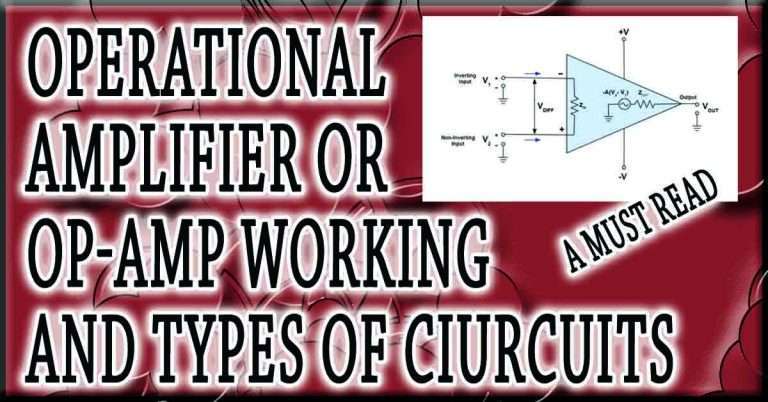EEE Engineering Courses: A Comprehensive Guide
Electrical and Electronics Engineering (EEE) is one of the most dynamic and sought-after disciplines in the world of engineering. EEE engineering courses cover a wide range of topics, including power systems, electronics, control systems, and electrotechnical engineering. If you are curious about this field or considering pursuing it as a career, this guide will provide detailed insights into EEE engineering courses, the topics they cover, and how to start your journey.

Table of Contents
Table of Contents
What Is Electrical Engineering?
Electrical engineering is a branch of engineering focused on the study, design, and application of electrical systems. It encompasses a wide range of topics such as power generation, electronics, communication systems, and control mechanisms. If you’ve ever wondered, what is in electrical engineering?, the answer lies in its wide applicability—from designing small electronic devices to developing massive power grids.
EEE engineering subjects offer practical knowledge about handling electrical systems and technologies, making them vital for solving real-world issues.
Why Choose EEE Engineering Courses?
1. Diverse Career Opportunities
With an EEE degree, students can become electrical engineers, and electronics specialists, or work in other electrotechnical engineering roles. Industries like renewable energy, telecommunications, automation, and robotics always need skilled professionals.
2. Strong Foundation for Further Studies
EEE engineering courses also prepare students for advanced studies in specialized fields like artificial intelligence, machine learning, or even electromechanical systems.
3. High Demand for Engineers
Electrical engineers are in high demand globally due to rapid technological advancements. With the world transitioning toward sustainable energy solutions, the role of electrical engineers has become more important than ever.
Topics Covered in EEE Engineering Courses
Core EEE Engineering Subjects
Here’s a list of core subjects typically included in a course for electrical engineering:
Circuit Analysis: Understanding electrical circuits and their behaviors.
Power Systems: Designing systems for power generation and distribution.
Control Systems: Developing mechanisms to control engineering systems efficiently.
Electronics: Learning about semiconductors, transistors, and integrated circuits.
Electromagnetics: Understanding electromagnetic fields and waves.
Digital Systems: Basics of microprocessors and digital circuit design.
Elective Topics
Courses in electrical engineering often include elective topics that allow students to specialize. Examples include:
- Renewable energy systems
- Robotics and automation
- Embedded systems
- Communication engineering
These subjects help students gain specialized knowledge and stand out in their careers.
Popular Courses for Electrical Engineers
For those wondering what is an electrical engineering course like, here’s a list of common programs offered in this field:
1. Undergraduate Programs
Bachelor’s Degree in Electrical and Electronics Engineering
This is the most popular choice for those starting their journey in electrical engineering.
Integrated Master’s Programs
Some universities offer integrated courses combining a bachelor’s and master’s degree for a more comprehensive education.
2. Postgraduate Programs
Master of Science (MS) in Electrical Engineering
An advanced degree focusing on specialized areas like power systems or robotics.
PhD in Electrical Engineering
Ideal for those interested in research or academia.
3. Certification Courses
Electric Engineer Course for working professionals.
Online courses in electrical engineering focus on emerging technologies like IoT, AI, and machine learning.
If you’re interested in free online training, check out resources like our post on Electrician Course Online Free.
Best Institutes Offering Electrical Engineering Courses Online in the United States
Several prestigious institutions in the U.S. provide online degrees and certifications in electrical engineering. Here’s a list of some popular ones:
Stanford University
Known for its cutting-edge research, Stanford offers online electrical engineering courses focusing on innovation.
MIT OpenCourseWare
MIT provides free resources and materials for those who want to learn independently.
University of Illinois Urbana-Champaign
This university offers online master’s degrees in electrical engineering, covering areas like signal processing and power systems.
Arizona State University
ASU provides flexible online courses tailored for working professionals in electrical engineering.
Georgia Institute of Technology
Georgia Tech offers highly rated programs in power systems and renewable energy.
These institutes provide excellent learning opportunities, helping you gain practical knowledge and certification.
Steps to Start Your Career in Electrical Engineering
Choose the Right Course
Explore different courses for electrical engineers to find one that aligns with your interests. Whether it’s renewable energy or robotics, choose a course that matches your career goals.
Focus on Core Concepts
Make sure you have a strong grasp of basic EEE engineering subjects like circuits, electromagnetics, and control systems.
Enroll in Specialized Training
If you aim to work in niche industries, enroll in electrical engineering courses focusing on emerging technologies like IoT or artificial intelligence.
Consider Online Learning Options
Online platforms make learning more accessible. Many universities and platforms offer comprehensive electrical engineer classes tailored for flexible learning.
Skills You Will Develop in EEE Engineering Courses
When pursuing a course in electrical engineering, you’ll acquire the following skills:
- Problem-solving skills: Analyzing and solving complex engineering problems.
- Technical expertise: Designing and implementing electrical systems.
- Project management: Planning and executing engineering projects.
- Communication skills: Collaborating with teams and presenting ideas effectively.
These skills are vital for succeeding in various engineering electrical roles.
Career Paths After Completing EEE Engineering Courses
Graduates of EEE engineering courses have a wide range of career opportunities:
Electrical Engineer
Work in industries like power generation, telecommunications, or renewable energy.
Electronics Design Engineer
Focus on creating advanced electronics like semiconductors and IoT devices.
Automation Specialist
Work in robotics and automation, designing systems that make processes efficient.
Research Scientist
Engage in cutting-edge research in areas like AI, machine learning, and electrotechnical engineering.
Academia
Teach at universities or engage in educational content development.
Conclusion
EEE engineering courses are a gateway to a dynamic and fulfilling career in electrical engineering. Whether you aim to design the next generation of electronic devices or work on sustainable energy systems, these courses offer the knowledge and skills needed to excel.
If you’re looking to upskill or start your journey, consider exploring online courses, including those mentioned above, to find the right fit for your needs. For additional free resources, don’t forget to check our post on Electrician Course Online Free.
Start your journey today with a course tailored to your interests and make an impactful career in electrical and electronics engineering!
By following this guide, you’ll not only enhance your knowledge of EEE engineering courses but also improve your understanding of what it takes to become a successful electrical engineer.
Follow Us on Social:
Subscribe our Newsletter on Electrical Insights for latest updates from Electrical Engineering Hub
#EEECourses, #ElectricalEngineering, #EngineeringEducation, #EEEPrograms, #EngineeringStudents, #LearnEEE, #EngineeringLife, #ElectricalStudies, #FutureEngineers, #TechnicalEducation, #EngineeringCareer, #PowerSystems, #CircuitDesign, #ElectricalTech, #EngineeringInnovation


